Flaman Rentals Blog
RSS feed
Categories
Recent activity
- What's it like being a Flaman Rental Dealer?
- A Brief History of the Newest Flaman Store in Swift Current
- Disney's NEW Leadership Excellence Training Course
- Disney's Approach To Quality Service
- Disney's Approach To Quality Service
- Trailering 'Rules of the Road' Updated
- 10th Annual Frank J. Flaman Foundation Gala 2016
- Why Frank Cares
Authors
Archive
Get Out and Enjoy Winter Part 2 - Benefits
Posted by Jeff Brown Dec 12, 2021
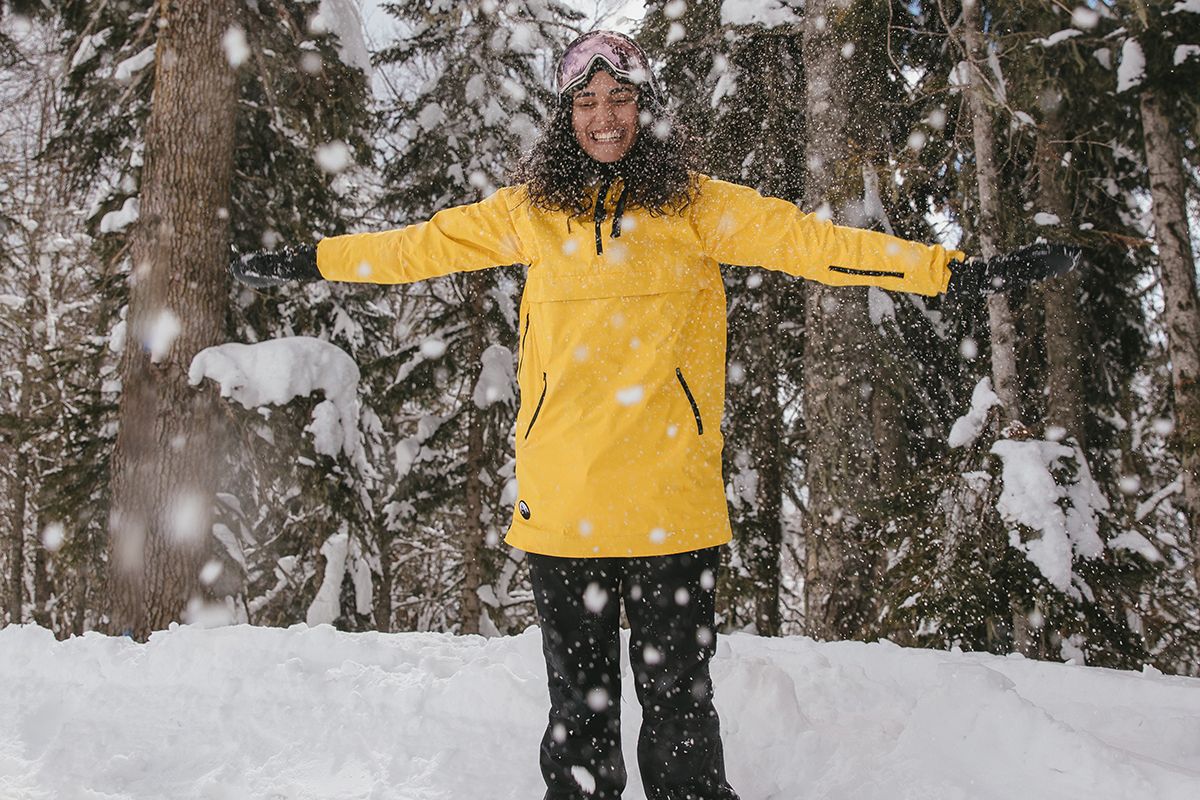
For countless winters, Canadians have instinctively taken to the outdoors. That habit has given us a national sport, long average lifespans, and a reputation for friendliness, hardiness and adaptability.
Most of us went out without the knowledge of studies documenting the good we were doing our minds and bodies. Fresh air, being active, and the natural beauty of our country were reasons enough.
Even if we find ourselves spending less time outside, the door is always open. So here’s some information for those who’d like to regain the joy of winters past and those yet to fully discover what the season offers. It’s our way of encouraging you to get out and enjoy the glories of a great Canadian Winter.
Part 2: Benefits
In part 1 of this series, we discussed the mental and physical costs of staying cooped up all winter. Then we showed how other cold-climate regions get out and make the most of our coldest season. We also mentioned the Japanese practice of shinrin-yoku, or “forest bathing” – seemingly nothing more than an observant walk in the woods. But its proponents argue that their time in nature is much more than a pleasant pastime. Researchers agree with them – pointing to documented benefits. For instance, the aromatic scent of evergreen trees wafting airborne essential oils that can boost your immunity for weeks.
And that’s just the beginning of the mental and physical benefits winter holds for you.
Scientifically Proven
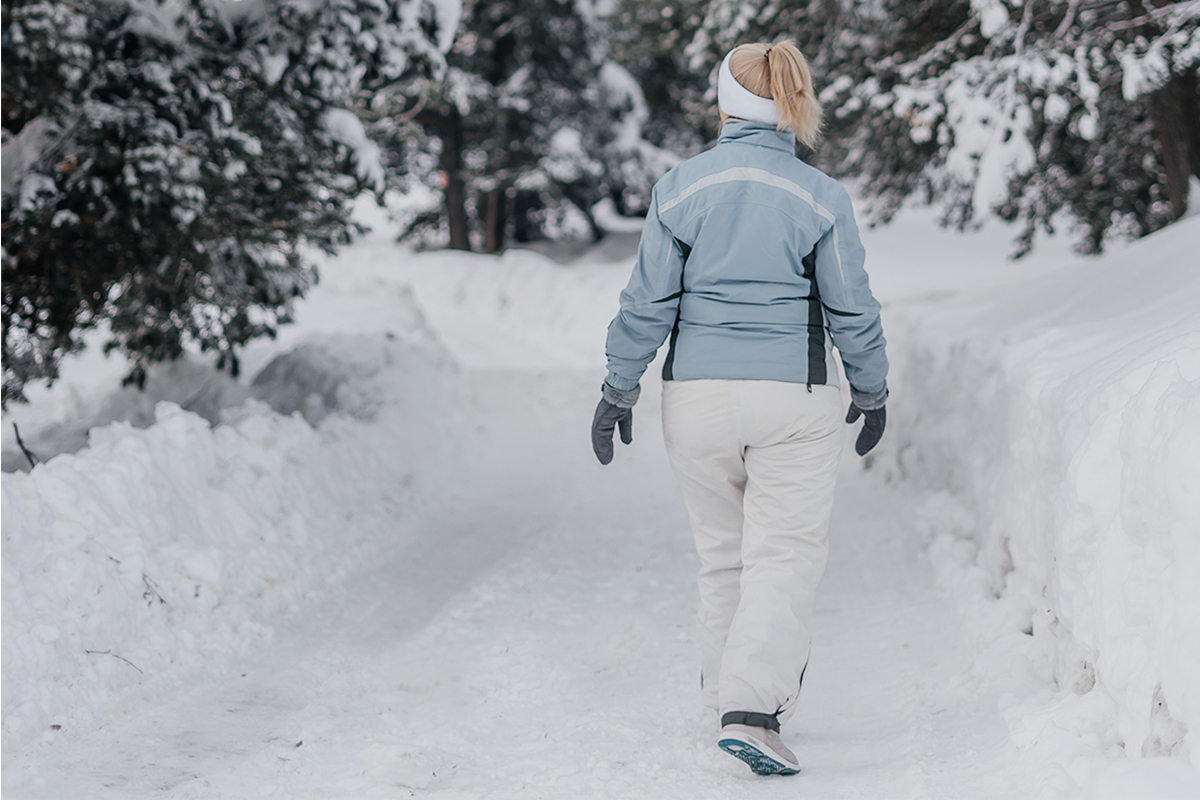
Studies indicate connecting with nature can help lower your body mass index (BMI) and lessen your risk of obesity and related conditions. A Central European study of late spring and winter forest bathing showed blood pressure levels dropped as well.
Findings suggest it may reduce the prevalence of chronic illnesses including diabetes and cardiovascular disease. Studies further show it speeds recovery from other ailments. There’s even research indicating that it bolsters NK (natural killer) cells in their battles with cancer and other life-threatening diseases.
It’s also shown to be as good for your mind as it is for your body – improving your memory, mood, motivation, energy, attention span, focus, creativity and problem-solving. Forest bathing has been attributed the power to enhance spiritual benefits like mindfulness and gratitude.
A Symbiotic Relationship
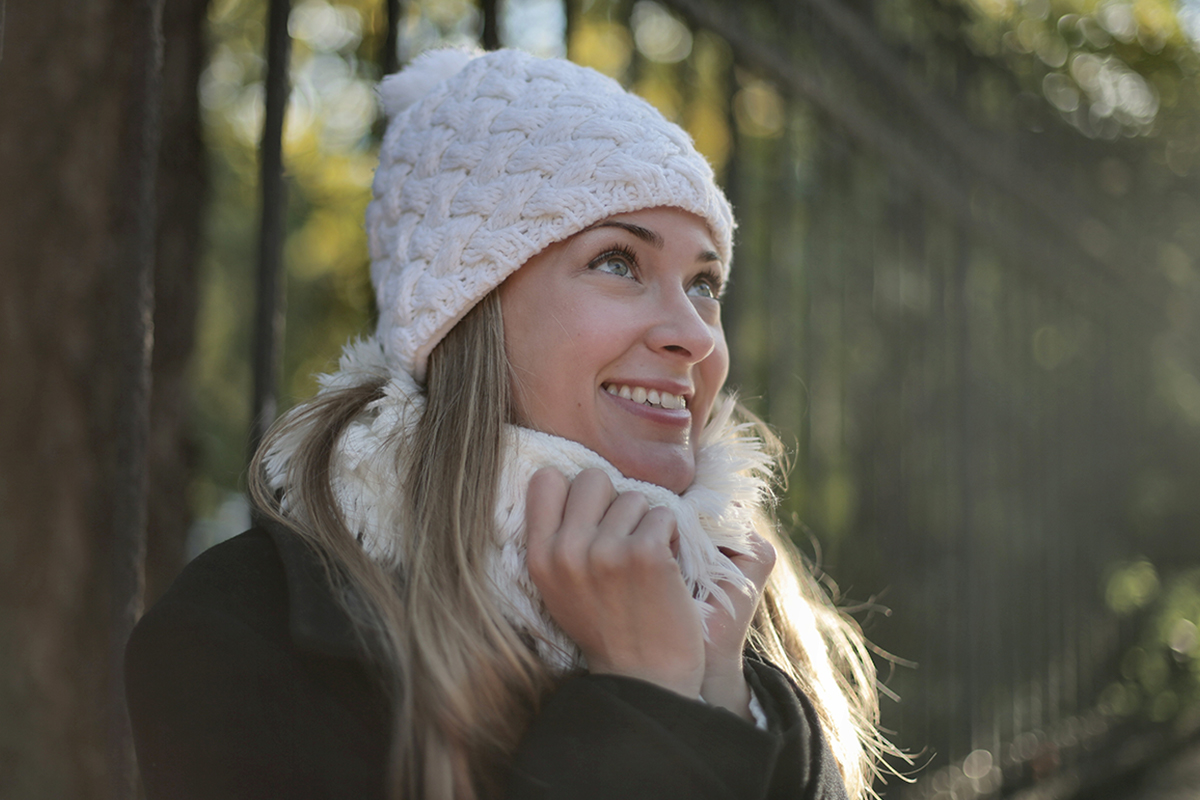
The relatively new field of Environmental psychology puts much stock in the notion that time in nature helps us resolve internal, interpersonal and societal ills. It holds that human beings are more readily adaptive to natural environments than man-made ones. Other tenets include:
- Natural light quickly helps reduce stress levels, lower blood pressure, and boost our immune system
- Strong connections to the environment make us more aware of it and how we fit into it.
- Humans can always improve the environment they live in.
- We’re active adapters to changes in society and the environment. We can reshape our social identities and affiliations to the physical space we occupy.
You can read more about our relationship with nature here.
Of course, many like to add a little physical exertion to their enjoyment of nature. That, too, can be an invigorating experience – if it’s done correctly.
Exercising in Winter
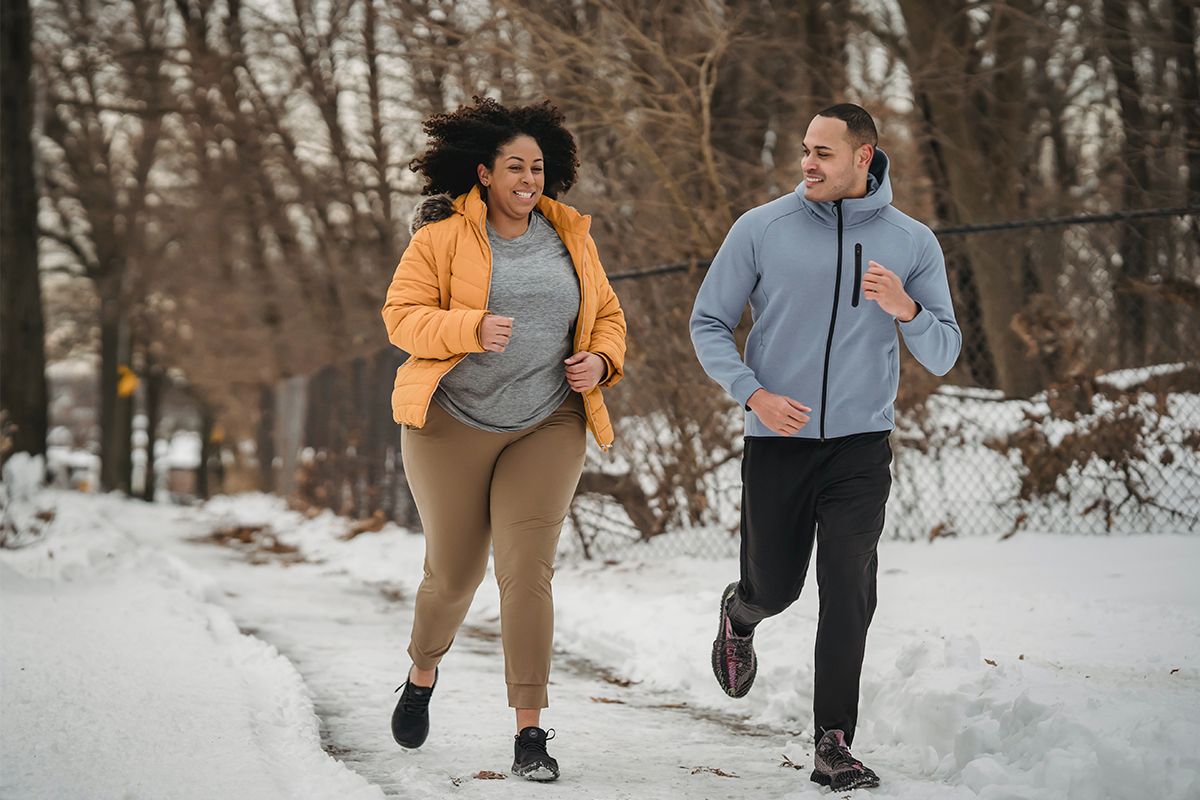
Short days and chilly weather can discourage you from going out for that daily jog or brisk walk. But once you get out and do it, you can adjust to the difference and reap a long list of benefits.
Your body will thank you for awakening a metabolism that just wants to sleep in. It will help keep your figure trim even throughout the feasting holidays. Outdoor exercise pumps up your heart health and lowers your blood pressure all year long. But in winter, the cold acts as another form of resistance.
Meanwhile, the sun sends down buckets of vitamin D – even in winter – bolstering your bone strength and immune system. Studies indicate it also aids weight loss and helps protect us from the flu, multiple sclerosis, and heart disease.
You won’t have to tax your heart rate as much as you do in the summer, meaning less sweat and more energy. And who wants to sweat in all that winter clothing? The weight of those layers helps you become stronger and fitter at the same time.
The Heart-Warming Effects of “Chilling”
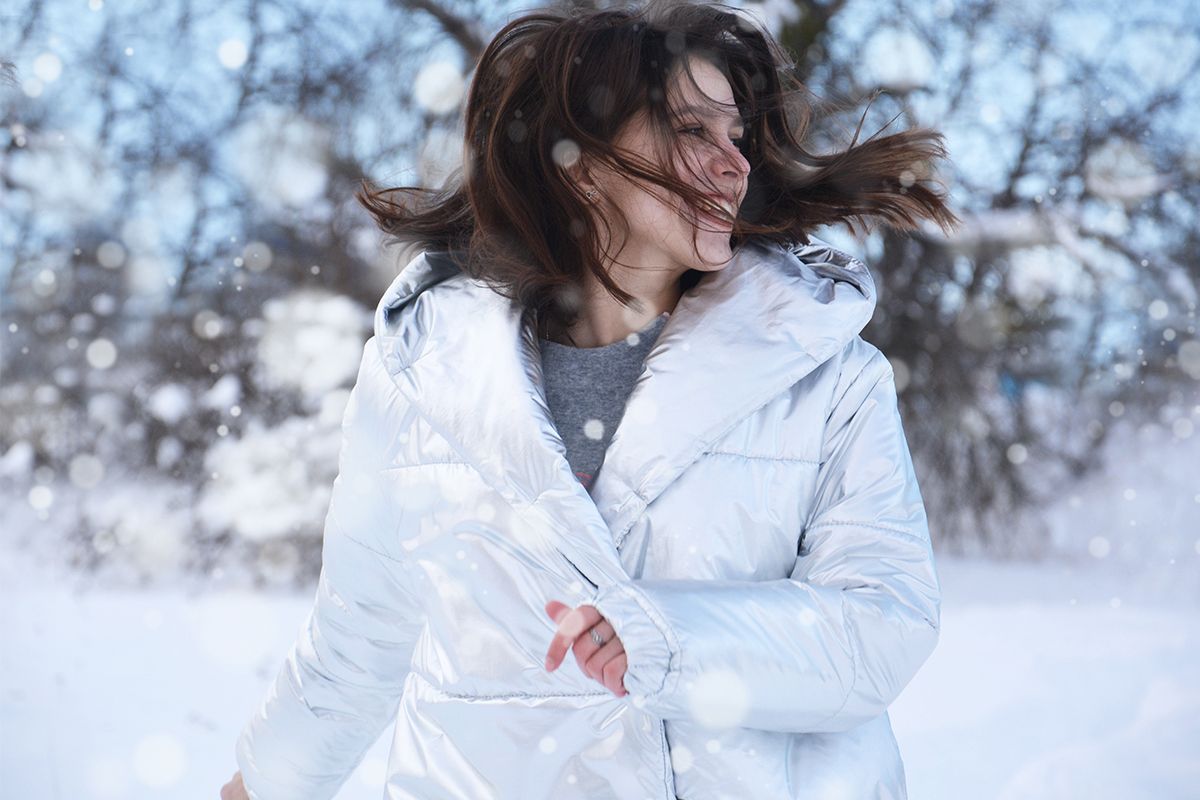
Piling on those clothes can take a load off your mind. Going out to exercise is an ironic escape; You’re breaking free of a debilitatingly oppressive winter by fleeing into a refreshingly liberating one.
Same winter. Different perspective. Instant change.
This isn’t purely philosophical. Science has proven exercise makes you happier by releasing delightful endorphins. It ends your day with a relaxing sleep, which helps you greet the next day with more energy and enthusiasm and a sharper focus.
The air in natural areas like park trails along rivers is high in negative ions. In this instance, it’s believed that negative is better than positive – especially when it comes to emotions. An Australian study backed this belief – showing runners who ran outdoors reported more mood elevation running outdoors than on an indoor treadmill.
Further research has indicated:
- Vitamin D helps battle anxiety and depression.
- Exercise can improve your response to stress
- Exercise may help your brain produce new cells – boosting performance and clarity
With winter exercise, the “how” is as important as the “why.” Its many benefits come with some sound advice on keeping your time outdoors, safe, productive and enjoyable. That’s in Part 3 of this series.
Warm Up to Winter Contest
Have you entered our Warm Up to Winter contest on our Facebook and Twitter pages yet?
It's that time of year again – and we're giving away some awesome prizes! Enter to win a $3,000 trailer purchase credit plus weekly prizes like trailer rentals, Koenders snowmobile sleds, gas cards, and more! Draws are made at the end of every week until our Grand Prize Draw on February 4th. Enter now – and good luck!
Posted in Contests | Tagged with Winter Contest winter recreation snowmobiling ice fishing trailers | More articles by Jeff Brown

 Locations
Locations



